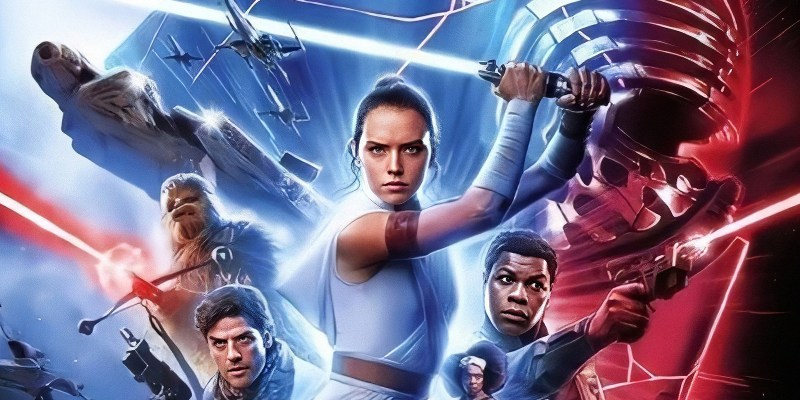Disney’s Star Wars sequel trilogy is plenty controversial — but did you know franchise creator George Lucas had some out-there ideas for his own, unproduced trio of follow-up films? Here’s a round-up of five wild ways George Lucas’ Star Wars sequels would have been different from what we ultimately got.
5. Darth Maul Was A Main Villain
Back in 2011, Lucas greenlit the return of Darth Maul in animated series Star Wars: The Clone Wars, undoing the fan-favorite villain’s death in Star Wars: The Phantom Menace. According to Paul Duncan’s The Star Wars Archives: Episodes I–III, 1999–2005, Lucas planned to build on this retcon in his sequel trilogy, having Maul serve as one of its main antagonists.

Maul would’ve assumed control over the galaxy’s various crime syndicates in Lucas’ sequels — just like in Clone Wars‘ later seasons. He also would’ve had close ties to the other major baddie of the piece, Darth Talon. A female Sith Lord, Talon would’ve handled most of these movies’ action scenes, functioning as “the new Darth Vader.”
Related: Baylan Skoll’s Star Wars Journey Won’t End With Ahsoka
4. Midi-chlorians and The Whills Played a Key Role
Introduced in The Phantom Menace, midi-chlorians rank among Lucas’ more divisive additions to the Star Wars canon. Lucas wanted to bring the microscopic life forms — which facilitate all sentient beings’ connection to the Force — back for his sequel trilogy, expanding this aspect of the franchise’s lore much further.

Part of this expansion would’ve involved the Whills: all-powerful microbiotic creatures only hinted at in existing lore. “The Whills, in a general sense, they are the Force… But it’s about symbiotic relationships,” Lucas explained in James Cameron’s Story of Science Fiction. “I think, personally, one of the core values we should have in the world, and kids should be taught, is ecology, to understand that we all are connected.”
Related: The Kevin Feige Star Wars Film is Officially Not Happening Per Kevin Feige
3. Fighting Organized Crime Was the New Republic’s Main Focus
As we alluded to earlier, Lucas’ vision for the Star Wars sequels emphasized gangsters over Imperial agents. This went beyond just having a mafioso Maul as one of the central antagonists. The ex-Sith Lord’s criminal outfit would’ve been the number one force for evil in the galaxy following the Empire’s defeat in Star Wars: Return of the Jedi.

Indeed, Lucas intimates in The Star Wars Archives that he conceived of organized crime’s influence as being so great that it threatened the fledgling New Republic. Princess Leia would’ve led the charge against the crooks, while her brother Luke Skywalker focused on filling out the Jedi Order’s ranks.
2. Ex-Stormtroopers Would’ve Formed a Rebellion
While Maul, Darth Talon, and their criminal cronies would’ve been the main threat to our heroes in Lucas’ Star Wars sequels, the filmmaker still made room for what was left of the Empire. Some of these former Imperials would’ve regrouped and launched an uprising — an intentional nod to real-world events.

“[My] Episodes VII, VIll, and IX would take ideas from what happened after the Iraq War… The stormtroopers refuse to give up when the Republic win,” Lucas said in The Star Wars Archives. “They want to be stormtroopers forever, so they go to a far corner of the galaxy, start their… own rebellion.”
Related: Disney Execs Reportedly Pushing Bob Iger to Acquire a Gaming Publisher Like EA
1. Princess Leia Was the New Chosen One
We’ve hinted at it already, but just to be clear: in Lucas’ take on the Star Wars sequels, Leia would’ve played at least as big of a role as Luke. Not only would she take on the gangsters (and win!), but as related in The Star Wars Archives, she would’ve ended up the Supreme Chancellor, as well.

The combined effect of these achievements would’ve safeguarded the Republic’s future — and earned Leia a lofty title. “Leia, Senator Organa, [becomes] the Supreme Chancellor in charge of everything,” Lucas elaborated. “So, she ended up being the Chosen One.“
